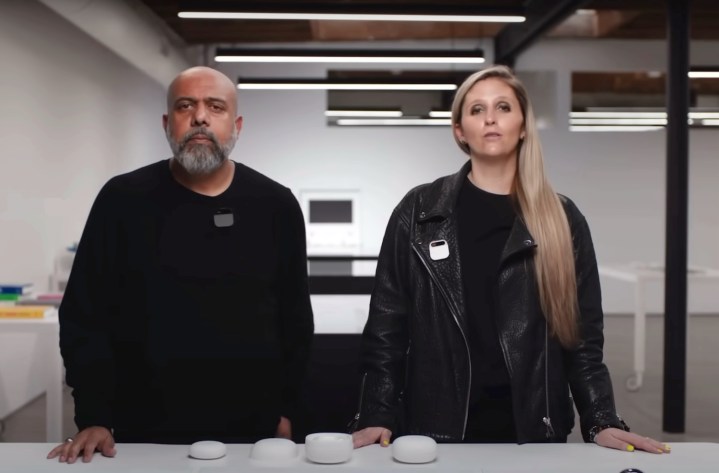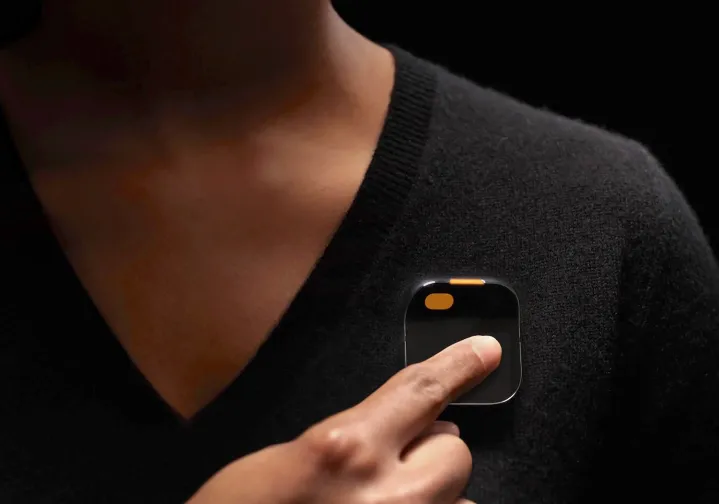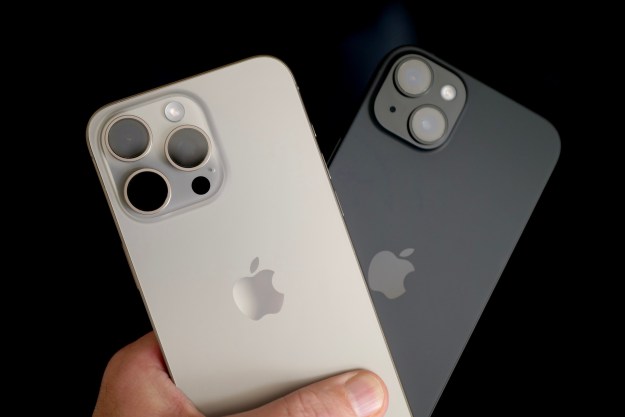
I should be so excited about the Humane AI Pin. It’s sci-fi-cool mobile tech wrapped up in a slick futuristic design with functionality that immediately makes me think of Star Trek. But when I really think about what it does and how it works, all I see is how it’s sucking all the fun out of smartphones, digital communication, and life in general.
If it truly represents the future of mobile, then you can keep it. I’ll stick with my iPhone, and this is why.
It’s very serious indeed
The future envisioned by Humane is not fun at all. It’s extremely serious. This was immediately evident by the tone of the introduction video, where the AI Pin was shown off in a sterile, almost lab-like environment by two people — Humane founders Imran Chaudhri and Bethany Bongiorno — dressed all in black, in a way that was more befitting of telling us about a medical product than a futuristic communication device.
Not every launch event needs flashing lights and epic stunts, but when it’s a product that’s truly different from anything else we use now, something extra is required so we engage with it right from the start. Say what you like about the silly spectacle of seeing skydivers and BMX riders delivering Glass to Sergey Brin on the stage at Google I/O, but it was absolutely memorable and a whole lot of fun. It made me want to try it out, as I saw potential in the craziness. Glass’ future vision made me say wow.
If it truly represents the future of mobile, then you can keep it.
Humane’s AI Pin introduction didn’t make me say wow at all. The future I imagined with the AI Pin was one of white walls, silver jumpsuits, assigned roles in life, and taking everything very seriously indeed. The AI would organize my life, curate my communications, and exchange messages with the AI belonging to my “trusted contacts.” I wouldn’t dare say wow, for fear that a police droid would cart me off for a night in the cells after disturbing the peace with my unwanted emotional outburst.
In Humane’s future, I could ask the AI Pin to make me sound excited in response to a message, but the most I can expect is for it to add “can’t wait” to its otherwise generic, AI-generated reply. Blimey, calm down, I don’t want to go too overboard with my excitement and make the recipient think I can barely contain myself!
All communication is valuable

Apparently designed to lessen screen time and make us “more present” than we are when we use a smartphone, the AI Pin uses AI to minimize the amount of time we waste by interacting with online and digital contacts. It summarizes this and dumbs down that and stops you from having to do any pesky typing. It makes the assumption that all the communication you have through your phone is either irrelevant or unimportant and that it can all be better dealt with by AI.
“My AI Pin will set up our next meeting with your AI Pin” is how I see future interactions going. I saw no emotion in the AI Pin at all, which is troublesome because, personally, a whole lot of my online and digital communication is filled with emotion. While I appreciate that my job is all about writing, so I’m attached to words, but I don’t think it’s always as natural to dictate messages as it is to type them out, either.
Not only isn’t it as natural, but it’s also not always preferable. Yet voice is the only way you interact with the AI Pin. I am not going to verbally express the way I feel, send someone heartfelt condolences, or tell someone why I miss them to my AI Pin in public, and I doubt I’m alone in this. Without a keyboard, though, there’s no other way to do so. But it’s OK because I very much got the impression that heightened emotional states have no place in Humane’s world.
Replace your phone, remove the fun

Any attempts at displaying your feelings will presumably be stamped out by the AI Pin, leaving you to enjoy those pure in-person social experiences it has set up for you. But what about when you want to relax or spend some time on the mass transport system taking you back to your pod? Nope, sorry, the AI Pin doesn’t have a screen, so you can’t read, watch videos, or play games.
You can listen to music, though, as demonstrated by Humane. What music did it choose to show this function? The Blue Danube waltz by Johann Strauss, which many may know from the soundtrack to 2001: A Space Odyssey. That’s the film about an AI-dominated future where nothing goes wrong, ever, so it was the perfect example to use.
Maybe I’d while away a journey or take my mind off things with a snack? I can show the AI Pin what I’m having, and it will tell me its nutritional components and add them to my daily intake. Because that’s all food is, right? Sustenance, and never something to enjoy. I saw absolutely no wonderment at all in Humane’s presentation of the AI Pin. There’s no opportunity for fun and no genuine personal interaction with the digital world. There’s only streamlining, canned responses, summarization, and sanitization.
It costs how much?

I’m not entirely sure if it’s supposed to, but Humane’s AI Pin cannot replace your phone. It simply doesn’t have the ability to replicate all of the varied features and experiences a smartphone offers. There’s no screen or keyboard, and there’s no creativity allowed with the camera, which just takes stills and videos from its own viewpoint. There are no apps, so you’re at the mercy of what Humane curates for you and the services it lets you use.
It’s certainly not cheaper than a smartphone at $700 with a $24 per month subscription fee, either. And you have to get a new number assigned to the AI Pin, one that your friends (current or long-lost) won’t have. Realistically, you’re going to have to run and pay for a

I don’t begrudge paying a premium for new tech, but the AI Pin doesn’t look like it does anything better than my smartphone. Instead, it apparently charges me to never have fun, be creative, or enjoy some downtime again. The AI Pin is seemingly a soulless piece of technology, which you’re expected to proudly display on your body, its Trust Light blinking for all to see. It’s The Stepford Wives meets Minority Report, set onboard the Enterprise, but with only the ship’s computer for company.
I’d love to be proven wrong and find out that it’s only the early promotional messaging that’s a bit dry and not the product or experience. But there’s nothing about the AI Pin that gives me that essential internal fizz that encourages me to open my wallet and find out.
Editors' Recommendations
- An Apple insider just revealed how iOS 18’s AI features will work
- Here’s how Apple could change your iPhone forever
- We may have just learned how Apple will compete with ChatGPT
- Qualcomm wants to add these crazy AI tools to your Android phone
- The secret cost of adding AI to your smartphone




